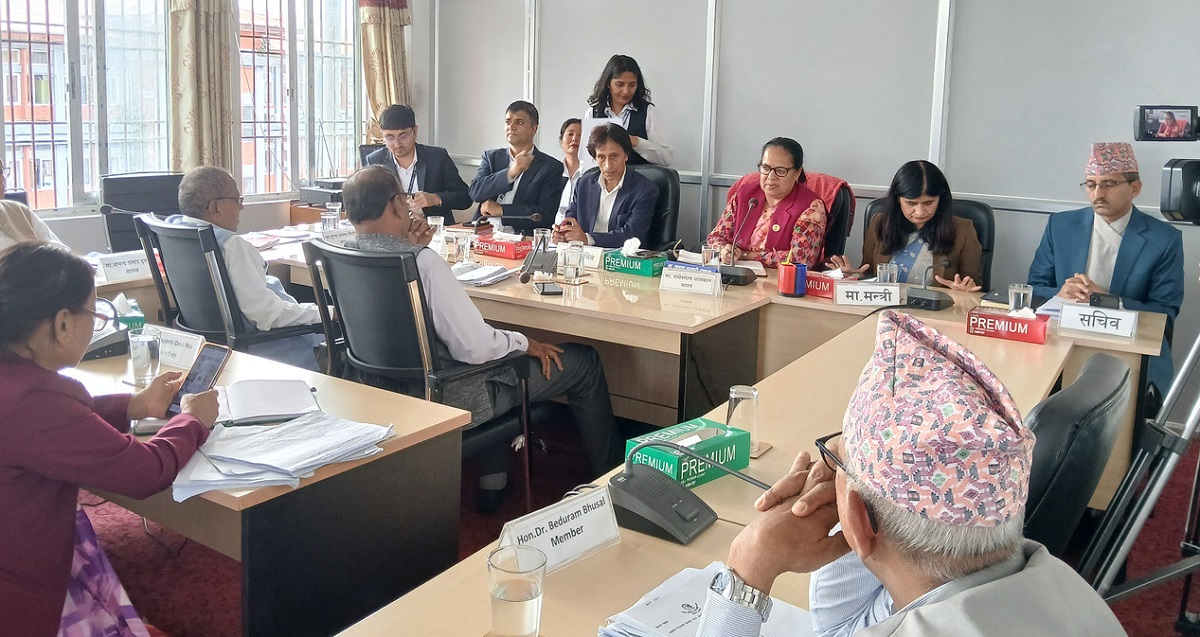It has been found that the Federal Civil Service Bill passed by the National Assembly's Committee for Legislation Management also contains errors.
Although the National Assembly removed the 13th-level additional secretary position introduced by the House of Representatives in the bill, the provision related to filling that position has remained intact.
The Federal Civil Service Bill, introduced by the government, includes provisions in Clause 9 regarding the organization, structure, and staffing of government offices for civil servants.
The State Affairs and Good Governance Committee of the House of Representatives had amended this clause, adding provisions for filling the additional secretary position.
The House of Representatives had revised the bill to designate the chief secretary at the 15th level, secretaries at the 14th level, additional secretaries at the 13th level, and first-class joint secretaries at the 12th level.
However, the National Assembly removed the provision regarding the newly added 13th-level additional secretary provision. Meanwhile, the provision related to filling the position, as set by the House of Representatives, has remained unchanged.
The House of Representatives had stipulated that, upon the commencement of the new Civil Service Act, the agency for the 13th-level position must be determined within three months. The National Assembly retained this clause, which was intended to designate the placement for additional secretaries. However, with the additional secretary position removed, this clause now implies that the government must determine the agency for secretaries at the 13th level.
Similarly, the House of Representatives had mandated that the relevant ministry or central-level agency conduct an organizational and management survey within two months of the act’s commencement and submit it to the ministry for the purpose of creating the additional secretary position. Even though the additional secretary position will not be created, the provision requiring an organizational and management survey remains in place.
Additionally, the State Affairs Committee of the House of Representatives had stipulated that when creating the 13th-level additional secretary position, the number of joint secretary (first class) or secretary (14th level) positions should be reduced based on the service group.
This clause, introduced by the House committee, should have been removed when the National Assembly eliminated the additional secretary position. Since it was not removed, after the act comes into effect, an organizational survey must be conducted within two months, and the chief secretary position must be cut to accommodate secretaries at the 13th level.
A senior official from the Federal Parliament Secretariat told Setopati that errors had occurred in the bill in the National Assembly.
“The 13th-level additional secretary position was removed by the National Assembly,” the official said. “However, the issue of filling the position remains. It seems a committee may need to be formed to investigate the errors.”
Another official from the Federal Parliament Secretariat, speaking on condition of anonymity, said that there are two ways to correct the errors.
First, the provisions could be removed through ancillary amendments. Second, the House of Representatives could reconcile the amendments made by the National Assembly by accepting or rejecting them.
The bill, passed by the National Assembly, has already been tabled in the House of Representatives. The amendments made by the National Assembly will now be presented to the House of Representatives for approval, which the House can either accept or reject.
“Removing entire sub-clauses in the name of ancillary amendments would not be ideal,” the official said. “It would be better for the House of Representatives to amend the bill.”
Tulasa Kumari Dahal, chairperson of the National Assembly’s Committee for Legislation Management, said she was unaware of errors in the bill. “I am busy with the party’s statute convention. I need to look into what happened with the bill,” she said.
The House of Representatives had included a provision in the Federal Civil Service Bill requiring civil servants who resign or retire to wait for two years before taking up constitutional appointments. This provision is commonly referred to as the “cooling-off period.”
However, since only minor modifications were made by the House to the provisions in the government’s bill, it was passed in a way that the cooling-off period would not be enforced as intended. A committee was formed to investigate the errors, and the National Assembly has since corrected them with amendments.
Now, the responsibility to address the errors regarding the additional secretary position lies with the House of Representatives.

